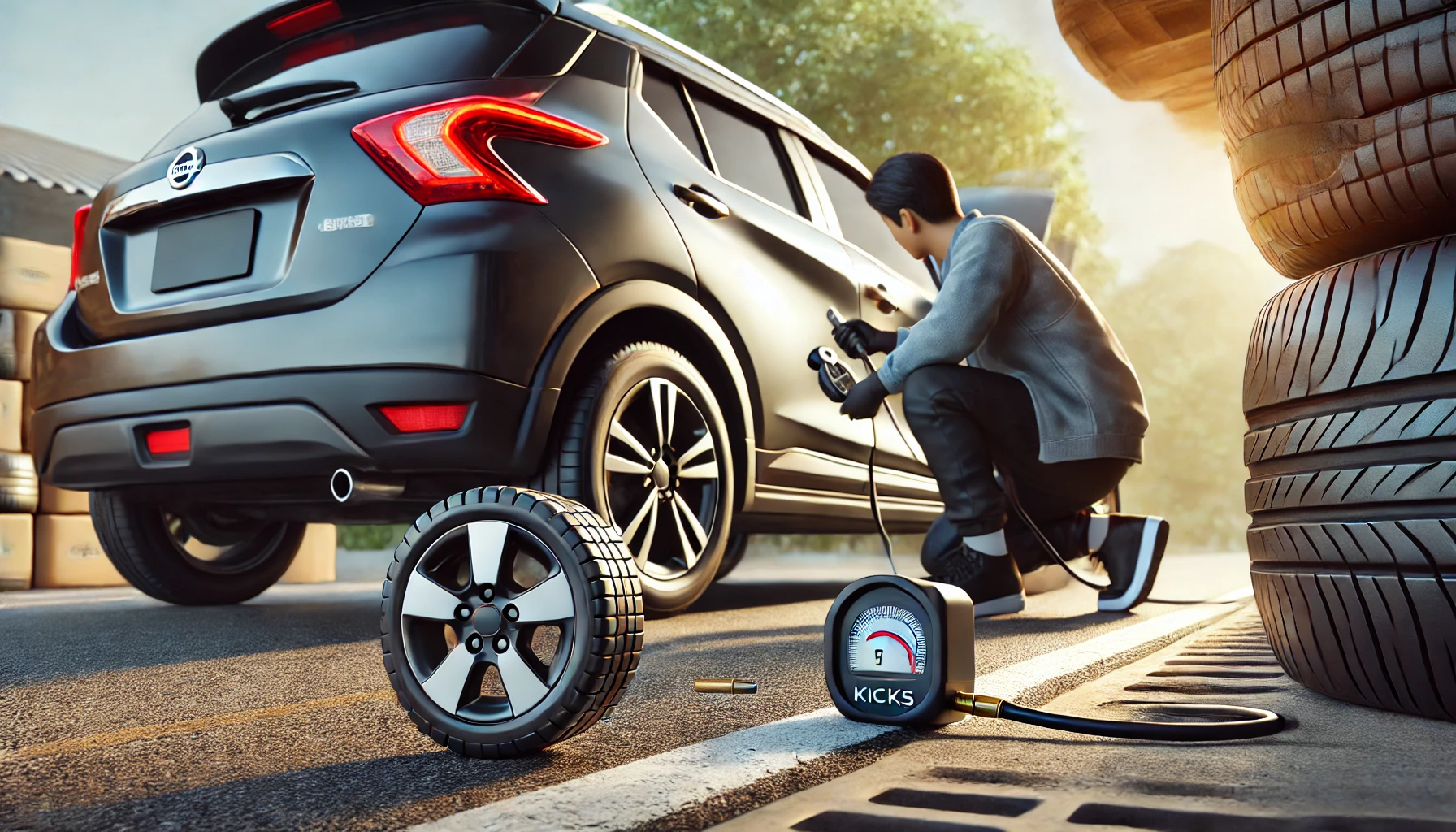
Common Causes of a Tire Pressure Sensor Fault in Nissan Kicks
If your Nissan Kicks shows a tire pressure sensor warning, these could be the likely reasons:
1. Low Tire Pressure
This is the most common cause. Even a small reduction in air pressure, especially due to weather changes, can trigger the warning light.
2. Aging or Faulty TPMS Sensors
After 5-7 years, TPMS sensors may start to malfunction or their batteries may die, leading to false warnings on your dashboard.
3. Tire Rotation or Replacement
If you’ve recently rotated or replaced your tires, the TPMS may require recalibration. Sensors in new positions or new sensors need to sync with the car’s system.
4. Temperature Changes
Cold weather can lower the air pressure in tires, which might trigger the TPMS light. The air inside tires contracts in low temperatures, causing pressure to drop.
5. Sensor Communication Issues
Sometimes the problem lies with the system not receiving signals from the TPMS sensors, which may require a reset or a diagnostic check.
How to Fix the Tire Pressure Sensor Warning on a Nissan Kicks
1. Manually Check Tire Pressure
Use a tire pressure gauge to check each tire. Ensure they’re all inflated to the recommended PSI (usually around 33 PSI for the Nissan Kicks). The TPMS light should turn off after driving for a few minutes once the tire pressures are corrected.
2. Reset the TPMS
To reset the TPMS on your Nissan Kicks:
- Turn the ignition to “ON” without starting the engine.
- Press and hold the TPMS reset button (often found under the dashboard) until the warning light blinks three times.
- Drive for 10-20 minutes at a steady speed to allow the system to recalibrate.
3. Replace Faulty Sensors
If the reset doesn’t work, one or more TPMS sensors might be faulty and require replacement. A mechanic can use a diagnostic tool to find the malfunctioning sensor.
4. Consult a Mechanic
If the issue persists after resetting the system, visit a certified mechanic or Nissan dealership for a detailed diagnosis of the system.
Preventing Future TPMS Issues
- Regularly check and maintain tire pressure, especially before long drives or during seasonal changes.
- Inspect TPMS sensors during routine tire maintenance to ensure they are functioning properly.
- Replace sensors every 5-7 years to avoid sensor battery issues.
